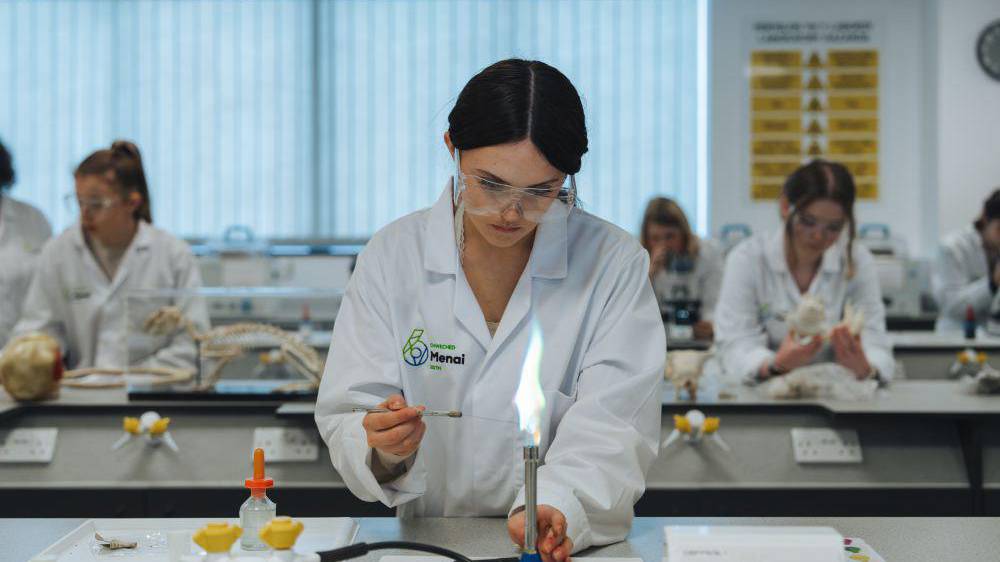AS/A Level Sociology (Part-time)
Key Details
-
Available at:Llangefni
-
Study Mode:Part-time
-
Course Length:
1-2 years
AS/A Level Sociology (Part-time)
Adults & Part-time
Please contact us for further information about applying for this course.
Applying for more than one A Level?
You can apply from this page and you will have the opportunity to add your additional A Level subjects at the end of the application process. You can find the A Level subject grid to make your choices on our main A Level page.
Course Description
Would you like to develop your understanding of sociological thought and methodology?
This course is designed for a wide range of students from diverse backgrounds and age groups, who want to explore these areas. It prepares you for employment and Higher Education, as well as giving you the critical skills to critically explore society institutions and individual identities.
Entry Criteria
In order to qualify for this course, you will need the following:
- 6 GCSEs at grade C or above, including English or Welsh 1st Language
- GSCE in Humanities subject grade B or GCSE English or Welsh 1st Language grade B. GCSE Mathematics or Numeracy grace C
As part of the application process, you will asked to attend an interview to give you the opportunity to discuss the course.
Progression to A Level is based on your performance at AS Level.
Delivery
This course is delivered as follows:
- Group work
- Classroom based learning
- Tutorial support
- Educational visits
- MOODLE (virtual learning environment)
Assessment
The course is assessed by external examination in January (units SY1 and SY3) and in June (units SY2 and SY4).
Progression
Whether you gain the full A Level or just the AS Level, the course adds to your qualifications and helps you to progress.
You will gain UCAS points and be able to apply for a range of Higher Education courses at many institutions. This includes degrees in Sociology, Criminology, Law, Media Studies, Politics, and Philosophy, as well as many other options.
The course also prepares you for a variety of careers, either directly or after Higher Education. This includes roles in journalism and the media, policing, law, politics, nursing, health and social care, education and local government.
Campus Information Bangor (New Campus)
Course description
On this course, you can learn how societies are structured and how they work, and how individuals and groups interact. It provides a sound understanding of sociological thought and methods, and the opportunity to develop a range of skills.
Unit information
AS Year
Unit G671: Exploring Socialisation, Culture and Identity
• Formation of culture, process of socialisation, role of socialisation in the creation of identities.
• Exploring the research process, exploring the use of quantitative and qualitative data-collection methods and analysis in the context of research, exploring the use of mixed methods in the context of research.
Unit G672: Topics in Socialisation, Culture and Identity - One topic from:
• Sociology of the family - key concepts and key trends within the family, the role of the family in society, family diversity, roles, responsibilities and relationships within the family.
• Sociology of health - key concepts and the social construction of health and illness, patterns and explanations of ill health in society, the social construction of mental illness and disability, the role of health professionals in society.
• Sociology of religion - key concepts and the changing nature of religious movements in society, the role of religion in society, religion and social position, the strength of religion in society.
• Sociology of youth - key concepts and the social construction of youth, the role of youth culture/subcultures in society, the relationship between youth and subculture, the experience of young people in education.
A2 Year
Unit G673: Power and Control - One topic from:
• Sociology of crime and deviance, definition and measurement of crime and deviance trends, patterns and explanations of crime and deviance, victimisation role of agents of social control in the construction of crime and deviance, solutions to the problem of crime.
• Sociology of education, structure and organisation of the education system, role and function of education in society, differential educational achievement, relationship between education and the economy, education and social policy.
• Sociology of the mass media - defining and researching the mass media, ownership and control of the media, construction of the news, media representations of social groups, effect of the media on society.
• Sociology of power and politics - defining and exploring political action in society, participation in and emergence of new social movements, changing patterns of political action, political ideologies and their relationship to political action, nature and distribution of political power in society.
Unit G674: Exploring Social
• Inequality and Difference Social inequality and difference, illustrated by the study of gender, class, ethnicity, age.
• Exploring sociological research on social inequality and difference - practical concerns, theoretical issues.
Other details
Course type: Adults & Part-time
Level:
3
Programme Area:
- AS/A-Level
Bilingual:
n/aAS/A-Level
